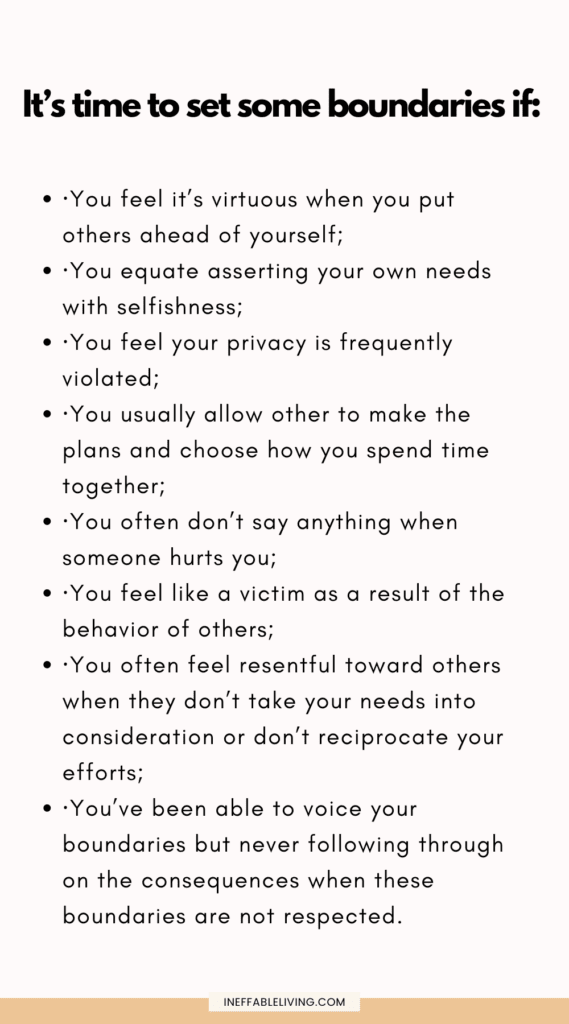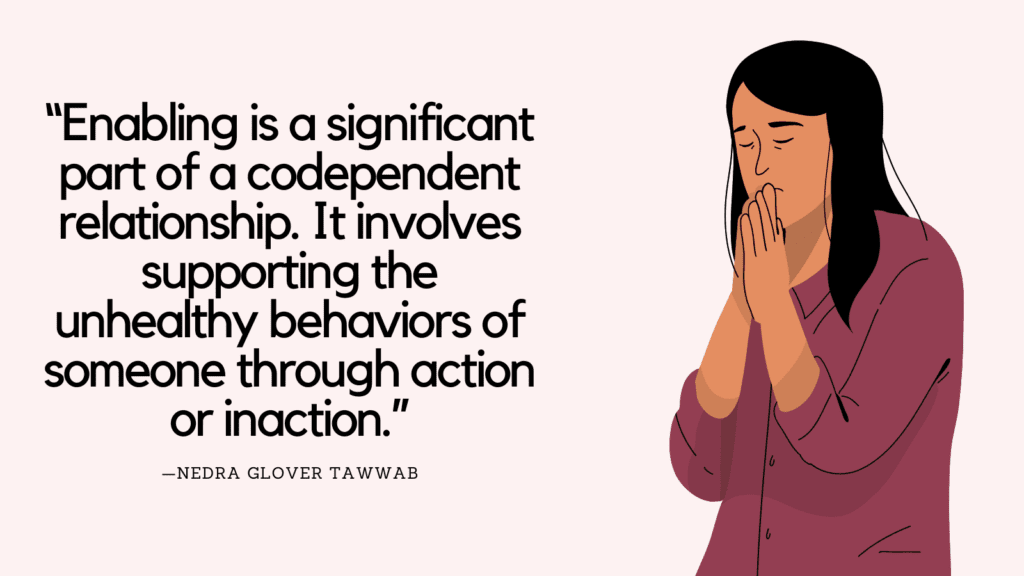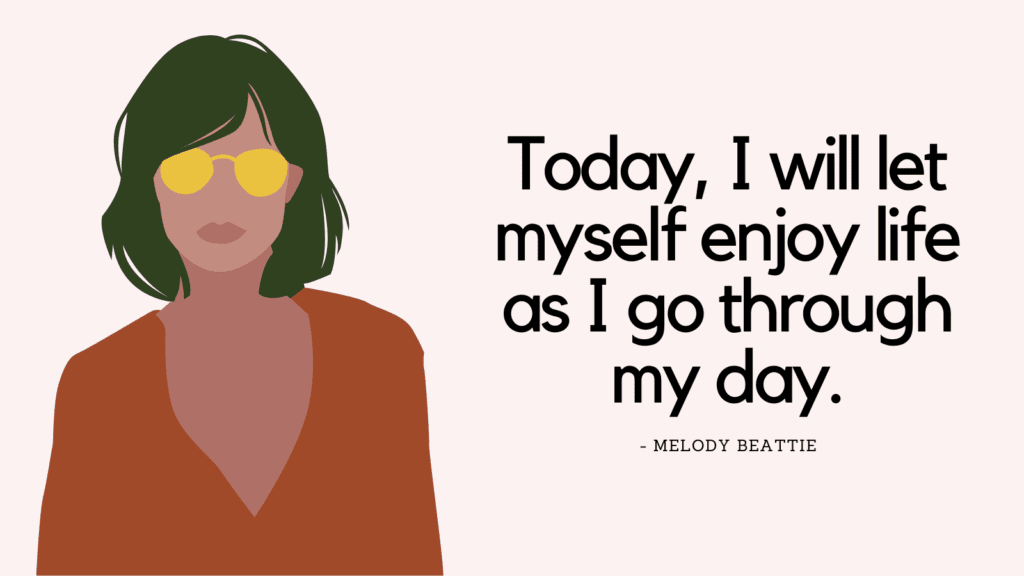This post contains some of the best quotes about enabling bad behavior.
What Is Enabling?
Enabling refers to a pattern of behavior or actions that unintentionally support or reinforce unhealthy or destructive behaviors in another person.
It often occurs in relationships where one person has an addiction, a mental health issue, or other self-destructive behaviors.
Enabling typically involves protecting the person from experiencing the natural consequences of their actions, taking on their responsibilities, or making excuses for their behavior.
While enabling may come from a place of love, concern, or a desire to help, it can inadvertently enable and perpetuate negative behaviors, impede personal growth, and prevent the individual from taking responsibility for their actions.
Examples of enabling behaviors include providing financial support despite knowing the money will be used to sustain unhealthy habits, covering up or minimizing the consequences of their behavior, constantly intervening to solve their problems, or neglecting one’s own needs and boundaries to accommodate the other person.
If you find yourself in a cycle of enabling, it is important to recognize the role you are playing and how it may be contributing to the problem.
Setting healthy boundaries, encouraging accountability, supporting professional help, and practicing self-care are crucial steps towards breaking the enabling pattern.
Quotes About Enabling Bad Behavior
1. “The family’s enabling, fixing, controlling, and rescuing behaviors, sometimes to their own or the addict’s detriment, could now be explained as an unhealthy obsession with the addict and his or her behavior.”— Robert Weiss
2. “The simple truth is that loved ones of active addicts are perpetually in crisis mode. Naturally, they try to control the crisis. In the process, they sometimes panic and make bad decisions. They may overdo. They may help too much. They may help ineffectively. They may enable and appear to be pathologically enmeshed. But that does not mean they are psychologically disordered.”—Robert Weiss
3. “If you’re in a relationship with someone who has experienced trauma, don’t try to do the work for them by enabling them. Tell them what you see, and refer them to a mental health professional.”— Nedra Glover Tawwab
4. “Boundaries protect our energy, enabling us to function effectively”— Jayne Hardy
5. “So, once again, loving and caring for an addict is not pathological behavior, even if that love and care occasionally runs off the rails and turns into enabling, enmeshment, and control. Instead, caring deeply and helping fully is a beautiful, wonderful, natural, and life-affirming thing to do.”—Robert Weiss
Related: Best 50 Codependency Affirmations For Recovering Codependents
6. “Enabling is a significant part of a codependent relationship. It involves supporting the unhealthy behaviors of someone through action or inaction. Codependency usually happens as a result of unhealthy boundaries.”—Nedra Glover Tawwab
7. “In some situations, telling a person that he or she is enmeshed and enabling and needs to detach from a troubled loved one can be downright disastrous.”—Robert Weiss
8. “As you become more emotionally independent, you take better care of yourself, and reactivity, enabling, and controlling behavior diminish.”—Darlene Lancer
9. “In codependent relationships, we believe we must help people avoid consequences, saving them from unpleasant experiences. We think it’s our role to protect them. But rather than protect, we enable the other person to continue their unhealthy behavior. We see the person we’re enabling as helpless and unable to take care of themselves without us.”—Nedra Glover Tawwab
Related: Love Addiction Test (+ Resources For Love Addiction)
10. “The fear, of course, is that caregiving loved ones might (and occasionally do), as a way of keeping the relationship intact, behave in ways that enable and perpetuate the addiction. Still, the solution is not detachment, where caregivers love the addict but only from afar. The solution is to stay connected and to continue caregiving, but to do that more effectively.”—Robert Weiss
11. “Enabling refers to caretaking that removes the natural consequences of someone’s irresponsible behavior. It also includes handling responsibilities for someone that they can and should be handling.”—Darlene Lancer
12. “Sometimes it’s not all in your head, and the people around you are enabling your worst tendencies.”—Patrick King
13. “Originally, enablers were co-alcoholics who suffered the consequences of the alcoholic’s drinking and did their best to literally clean up after the alcoholic, made excuses to the boss and friends, got the alcoholic into bed, and bailed him or her out of jail and other messes.”—Darlene Lancer
Related: Top 5 Tips On How To Recover From Love Addiction
14. “You can only change your behavior to not enable or support other people’s behaviors. You are only a part of someone else’s mental calculus.”— Patrick King
15. “Addiction is a universe where caregiving is often viewed as enmeshed, enabling, and controlling, and choosing to stick with an addicted loved one is seen more as a reflection of the caregiver’s troubled past—meaning unresolved early-life trauma and abandonment issues—than an indication of love and healthy bonding.”— Robert Weiss
16. “Today enabling is more widely applied to behavior that enables anyone to continue acting in a self-destructive manner.”—Darlene Lancer
17. “Enablers have a warped sense of responsibility and feel extremely guilty not enabling, even though they’re not responsible for the problems created by others.”—Darlene Lancer
Related: How to Recover From Codependency And Savior Complex?
18. “Enabling behaviors, disguised as helping behaviors, will keep the addict (and the family) stuck in the cycle of addiction.”—Robert Weiss

19. “Loved ones of addicts also need therapists and others to understand, accept, and validate that they have every right to feel angry, hurt, confused, and mistrustful. Thus, they may understandably rage, split, decompensate, do detective work, enmesh, enable, control, try to get an opinion from anyone they can find, and more. This is their perfectly normal reaction to the crises wrought by their loved one’s addiction.”—Robert Weiss
20. “Codependence implies that the loved ones of addicts, due to their underlying, often unconscious “childhood issues” tend to, as adults, give too much and love too much. Thus, they attract, enable, and enmesh with addicted partners.”— Robert Weiss
21. “I need to remember that telling the caregiving loved one of an addict to “just stop enabling and controlling” is about as useful as telling an addict to “just stop using.” So, not at all. A better, more prodependent approach is to help the caregiver build healthy interdependence and connection with the addict over time by establishing boundaries that are realistic and workable for that person in that relationship at that time. No more, no less.”— Robert Weiss
Related: Caregiving vs Caretaking (The Savior Complex)
22. “Everyone’s behavior organizes around the denial of the addict’s disease. They try to maintain normalcy and protect and enable the addict. They repress thoughts, feelings, and observations in order not to make waves and live in fear of another binge, disaster, or blowup.”—Darlene Lancer
23. “Managing and controlling behaviors, which include caretaking and enabling, violate others’ boundaries. Managing someone’s life shows disrespect. It sends the message that the person is incompetent and needs your help.”—Darlene Lancer
24. “Nothing you say makes any permanent difference. You come to realize that your words and enabling actions are futile, and only breed resistance. In fact, stopping addictive behavior is so difficult for addicts that anyone attempting to influence them distracts them from the problem of their addiction. You become the obstacle in their mind. Controlling and enabling actually prolong an addiction.”—Darlene Lancer
25. “Some parents control and enable their children too much, who then as adults they don’t know how to be responsible for themselves.”—Darlene Lancer
Related: Codependency And Enmeshment: 9 Signs You May Be In An Enmeshed Relationship




